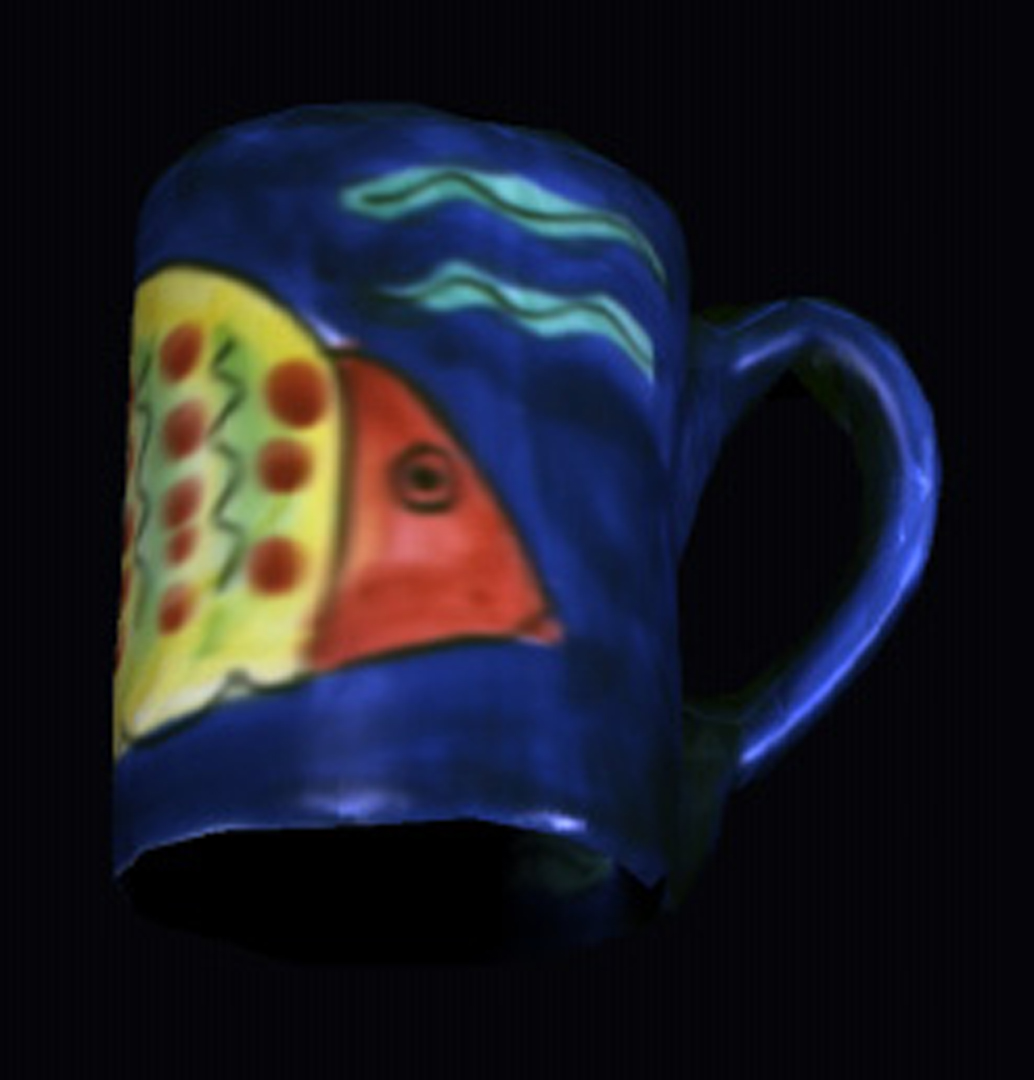“Object shape and reflectance modeling from observation” by Sato, Wheeler and Ikeuchi
Conference:
Type(s):
Title:
- Object shape and reflectance modeling from observation
Session/Category Title:
- Texture, Reflection, and Design
Organizer(s):
Presenter(s)/Author(s):
Abstract:
An object model for computer graphics applications should contain two aspects of information: shape and reflectance properties of the
object. A number of techniques have been developed for modeling object shapes by observing real objects. In contrast, attempts to model reflectance properties of real objects have been rather limited. In most cases, modeled reflectance properties are too simple or too complicated to be used for synthesizing realistic images of the object.
In this paper, we propose a new method for modeling object reflectance properties, as well as object shapes, by observing real objects. First, an object surface shape is reconstructed by merging multiple range images of the object. By using the reconstructed object shape and a sequence of color images of the object, parameters of a reflection model are estimated in a robust manner. The key point of the proposed method is that, first, the diffuse and specular reflection components are separated from the color image sequence, and then, reflectance parameters of each reflection component are estimated separately. This approach enables estimation of reflectance properties of real objects whose surfaces show specularity as well as diffusely reflected lights. The recovered object shape and reflectance properties are then used for synthesizing object images with realistic shading effects under arbitrary illumination conditions.
References:
- 1.R. Baribeau, M. Rioux, and G. Godin, “Color reflectance modeling using a polychromatic laser sensor,” IEEE Trans. on Pattern Analysis and Machine Intelligence, vol. 14, no. 2, pp. 263-269, 1992.?
- 2.R.L. Cromwell, “Efficient eigenvalues for visualization,” in E S. Heckbert, editor, Graphics Gems IV, Academic Press, San Diego, 1994.?
- 3.B. Curless and M. Levoy, “A volumetric method for building complex models from range images,” Computer Graphics (SIGGRAPH ’96 Proceedings), pp. 303-312, 1996.?
- 4.A. Hilton, J. Stoddart, J. Illingworth, and T. Windeatt, “Reliable surface reconstruction from multiple range images,” Proceedings of European Conference on Computer Vision ’96, pp. 117-126, 1996.?
- 5.H. Hoppe, T. DeRose, T. Duchamp, J. McDonald, and W. Stuetzle, “Surface reconstruction from unorganized points,” Computer Graphics (SIGGRAPH ’92 Proceedings), pp. 71-78, 1992.?
- 6.H. Hoppe, T. DeRose, T. Duchamp, J. McDonald, and W. Stuetzle, “Mesh Optimization,” Computer Graphics (SIGGRAPH ’93 Proceedings), pp. 19-26, 1993.?
- 7.K. Ikeuchi and K. Sato, “Determining reflectance properties of an object using range and brightness images,” IEEE Trans. on Pattern Analysis and Machine Intelligence, vol. 13, no. 11, pp. 1139-1153, 1991.?
- 8.C.L. Jackins and S. L. Tanimoto, “Oct-trees and their use in representing three-dimensional objects,” Computer Graphics Image Processing, vol. 14, no. 3, pp. 249-270, 1980.
- 9.G. Kay and T. Caelli, “Inverting an illumination model from range and intensity maps,” CVGIP: Image Understanding, vol. 59, pp. 183-201, 1994.?
- 10.W. E. Lorensen and H. E. Cline, “Marching cubes: a high resolution 3D surface construction algorithm,” Computer Graphics (SIGGRAPH ’87 Proceedings), vol. 21, no. 4, pp. 163-169, 1987.?
- 11.J. Lu and J. Little, “Reflectance function estimation and shape recovery from image sequence of a rotating object,” Proceedings of International Conference on Computer Vision, pp. 80-86, June 1995.?
- 12.S. K. Nayar, K. Ikeuchi, and T. Kanade, “Surface reflection: physical and geometrical perspectives,” IEEE Trans. on Pattern Analysis and Machine Intelligence, vol. 13, no. 7, pp. 611-634, 1991.?
- 13.S. K. Nayar, X. Fang, and T. E. Boult, “Removal of specularities using color and polarization,” Proceedings of Computer Vision and Pattern Recognition ’93, pp. 583-590, New York City, NY, June 1993.
- 14.K. Sato, H. Yamamoto, and S. Inokuchi, “Range imaging system utilizing nematic liquid crystal mask,” Proceedings of International Conference on Computer Vision, pp. 657-661, 1987.
- 15.Y. Sato and K. Ikeuchi, “Temporal-color space analysis of reflection,” Journal of Optical Society of America A, vol. 11, no. 11, pp. 2990- 3002, November 1994.
- 16.Y. Sato and K. Ikeuchi, “Reflectance analysis for 3D computer graphics model generation,” Graphical Models and Image Processing, vol. 58, no. 5, pp. 437-451, September 1996.?
- 17.S. Sharer, “Using color to separate reflection components,” COLOR Research and Application, vol. 10, no. 4, pp. 210-218, 1985.
- 18.R. Szelski at Micro Soft Co., personal communication.
- 19.K. E. Torrance and E. M. Sparrow, “Theory for off-specular reflection from roughened surface,” Journal of Optical Society of America, vol. 57, pp. 1105-1114, 1967.
- 20.G. J. Ward, “Measuring and modeling anisotropic reflection,” Computer Graphics (SIGGRAPH 92Proceedings), vol. 26, no. 2, pp. 265- 272, 1992.?
- 21.M. D. Wheeler, Y. Sato, and K. Ikeuchi, “Consensus surfaces for modeling 3D objects from multiple range images,” DARPA Image Understanding Workshop, 1997.?
- 22.L. B. Wolff, T. E. Boult, “Constraining object features using a polarization reflectance model,” IEEE Trans. on Pattern Analysis and Machine Intelligence, vol. 13, no. 6, pp. 635-657, 1991.?






